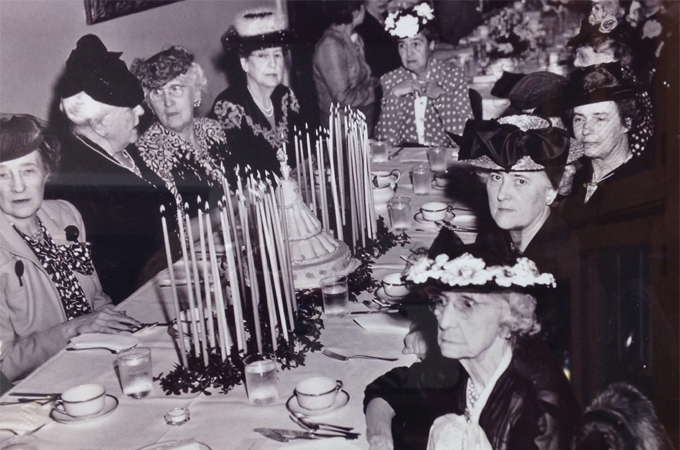What do Kate Chopin, Sara Teasdale and Irma Rombauer have in common? If you’d said they’re all published authors, you’d be right. Chopin published The Awakening in 1899, Teasdale won the Columbia University Poetry Prize in 1918 (and later a Pulitzer Prize), and Rombauer penned Joy of Cooking in 1931.
If you’d said they’re all St. Louisans, that, too, would be correct. But the women have even more in common: membership in the Wednesday Club of St. Louis, which marked its 125th birthday recently.
Founded in 1890 by a group of forward-thinking “earnest” women, the group initially met in their homes to broaden their education by studying the poetry of Percy Bysshe Shelley. A short time later, realizing that Shelley was an agnostic and that calling themselves the Shelley Club might lead others (particularly their husbands) to question their motives, the group changed its name to The Wednesday Club.
The women soon broadened their intellectual pursuits and drafted a constitution proclaiming its purpose: “to maintain an organized center of thought and action among the women of St. Louis.” The concept proved so popular that by year’s end more than 100 women were members. Too large to continue meeting in homes, the club rented space on the second floor of the Union Dairy Building at Washington and Jefferson avenues. To allow employed women (mostly teachers) to be members, the club scheduled meetings between 3 and 5 p.m.
In 1891 The Wednesday Club became part of the National Federation of Women’s Clubs, joining forces with other like-minded women throughout the United States, eventually expanding its mission to include community impact without being ‘controversial.’
They found projects on which everyone could unite. In 1896, a time when a pall of soot hung over the city due to the burning of soft coal, The Wednesday Club joined forces with the all-male St. Louis Engineers Club to establish a Smoke Abatement League to study ways to end air pollution. They helped create a Penny Lunch program for schools in poor districts, advocating for the establishment of child labor laws, milk inspection, street sanitation, under-age kindergartens and leisure-time clubs for children in overcrowded neighborhoods. In 1904 they formed a publicity bureau to provide information to women coming to St. Louis for the World’s Fair. As you might expect, the members also were active in the women’s suffrage movement.
All the while, the club kept growing. In the spring of 1896 the membership moved into larger quarters at the YMCA at Grand and Franklin avenues. In 1908 the club was so prosperous it commissioned architect Theodore Link, who designed Union Station, to create a headquarters at the corner of Westminster Place and Taylor Avenue in the Central West End. There it remained until 1971, when the club moved to a new headquarters building on Ladue Road in Creve Coeur.
True to its roots as a group formed to study poetry, The Wednesday Club, through its Poetics Section, supports the young poets of today with poetry prizes in a name- and school-blind contest judged by accomplished, published poets. The club also provides college scholarships to deserving students.
Through the years, the focus of various Sections changed, but the concept of presenting speakers and information to educate the members remains. Just last year, for instance, a morning program delved into the origins of the musical scores that accompanied silent movies. After a break for lunch, (served by members, who take turns acting as waitresses) the afternoon program began. The topic: Sex Trafficking in the Greater St. Louis Area, with experts discussing efforts to stop it and how to rehabilitate the young women imprisoned in the system.
Rather than engaging in active lobbying for various agreed-upon causes as the founders did, the 300 members of today’s Wednesday Club are more likely to bring a long record of civic activity to the group when they join. The organization’s immediate past president, Lee Berger, is a former mayor of Olivette who helped rescue and restore Tower Grove Park as president of the Friends of Tower Grove Park.
New president Carol James has a long history of volunteerism. She applauds the forward-thinking women who began The Wednesday Club and created wonderful bylaws that “provide for anything that can happen,” convinced
that’s how the club has stayed relevant to this day. “Everyone in the club has had an impact on the community through some other organization,” she says. “That in turn attracts other members who bring their own individual knowledge and talents.”
Pictured: The Wednesday Club’s 50th anniversary celebration
